Why is Switzerland refusing to follow EU sanctions on China?
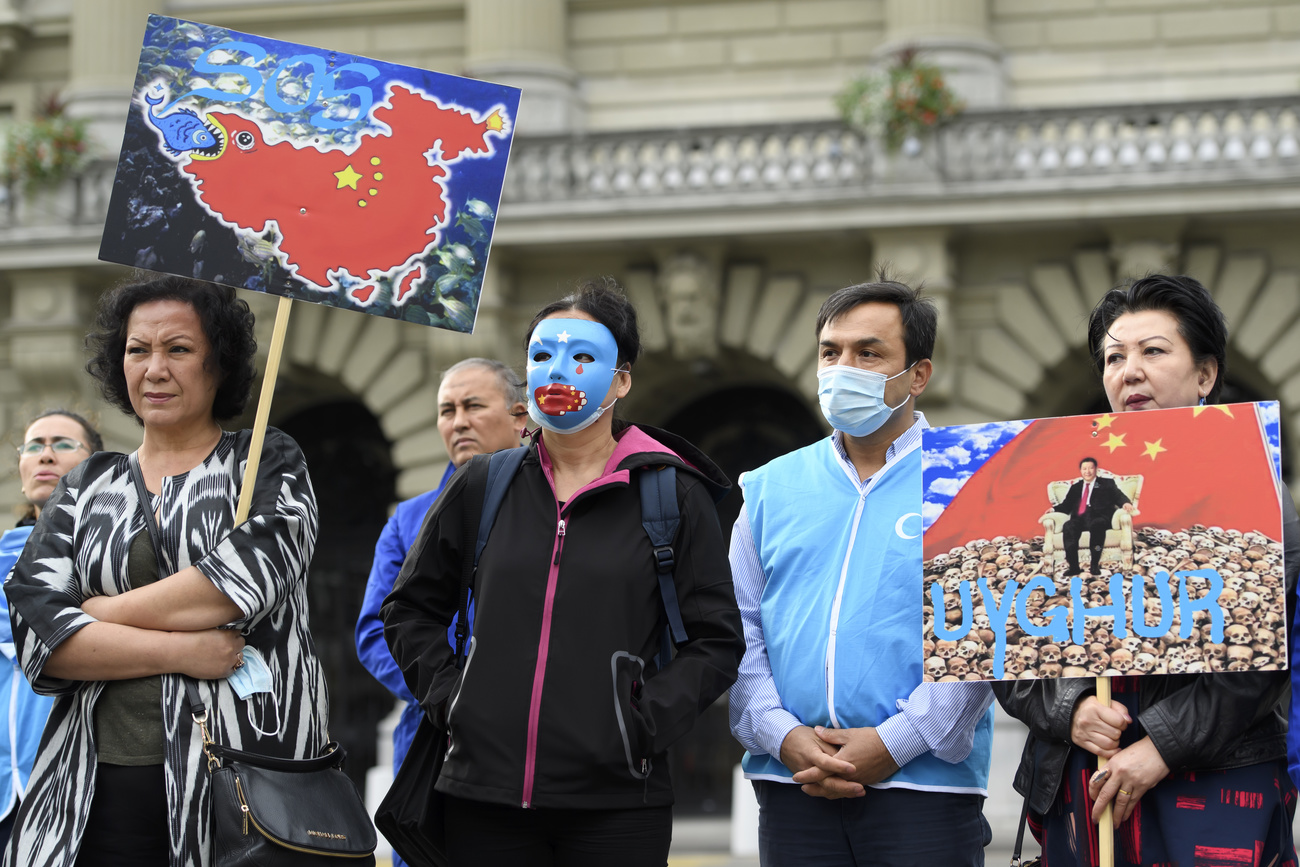
Switzerland decided not to join the European Union (EU) in imposing sanctions on China in 2022. But why was there no communication about this decision? We went looking for answers.
Switzerland’s decision came just a month after the Chinese ambassador to Switzerland warned the country not to follow the EU. Although there is no evidence that the two events are connected, there is an impression that Switzerland is “shying away from taking a bold stance on China and the real reason behind this decision is economic”, says Ralph Weber, a European Global Studies professor at the University of Basel.
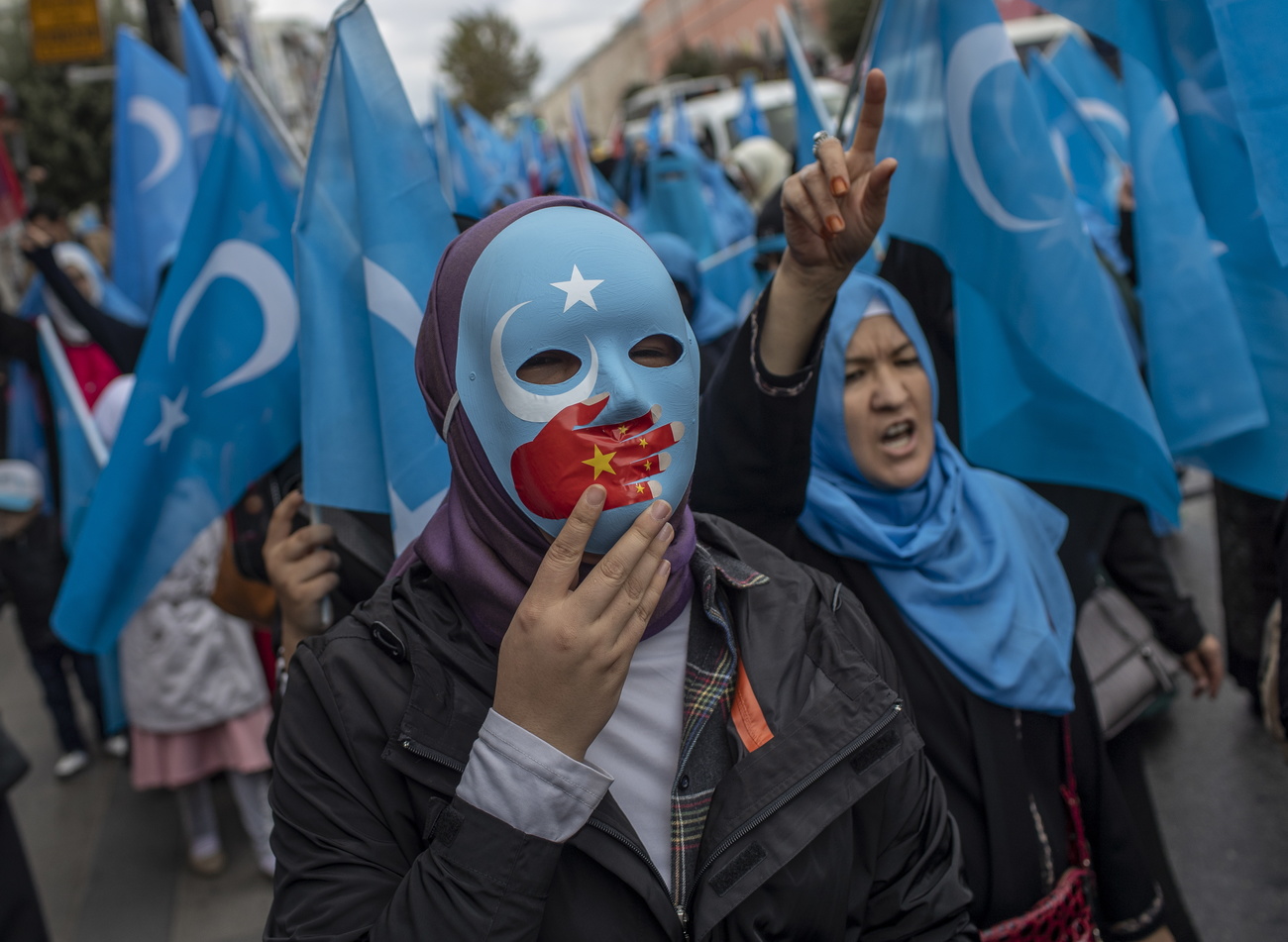
More
Calls for accountability mount after UN China report
In March 2021, the European Union imposed sanctions on some Chinese individuals and companies over alleged human rights abuses targeting the Uyghur population. All EU countries, and most Western powers, including the UK, the US, Canada, Iceland and Norway adopted these sanctions. Since the very beginning of this process, Switzerland has been under pressure to take a decision on the matter.
Switzerland is ‘shying away’ from angering China
The Swiss government decided to reject the sanctions in December 2022. But it never communicated this decision to the public, a recent report by the Swiss newspaper Neue Zürcher Zeitung (NZZ)External link revealed. “Now they say they won’t provide further information about this decision, but they owe us an explanation,” says Weber.
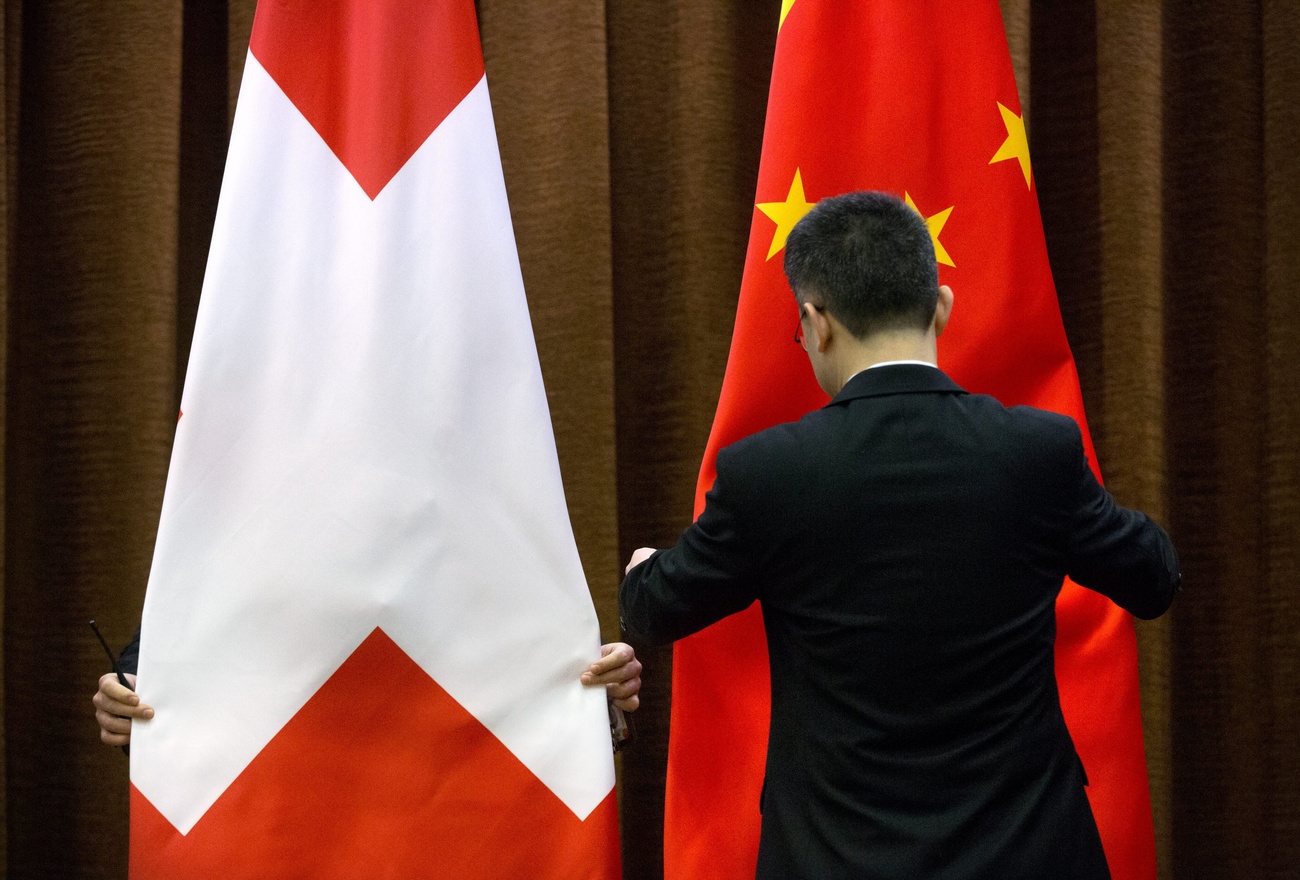
More
Switzerland in no rush to mirror EU sanctions against China
Some Swiss politicians, including the Social Democrat (left-wing) Fabian Molina, say the government’s lack of communication means it “tried to cover it up”. However, others have expressed satisfaction and relief that Switzerland is holding back from measures that could anger Beijing.
“The Federal Council [government] weighed up the interests based on various foreign policy and legal criteria,” the Swiss Economics Ministry told the NZZ. But Weber thinks that the legal questions are not the real issue here. “Iceland and Norway might also have legal issues, but it did not take them this long to make a decision,” explains Weber.

More
Why Switzerland is ending development aid to Mongolia
As reported by the Swiss online media site Watson.chExternal link, the Swiss government announced in April 2023 that in December 2022 they decided to “examine the existing legal basis in more detail”, while it has now been revealed that the decision of not adopting the sanctions had already been taken.
And if it is legitimate for the Alpine country to take into considerations its economic interests, “it is not fair to refuse to give us an explanation. It’s clear that Switzerland is putting economic interests above human rights concerns,” Weber says.
What’s the future of Swiss-Chinese relations?
He believes that Switzerland fears possible retaliatory measures by China, like those which Beijing imposed on the EU after the adoption of the sanctions. After all, the political relations between Switzerland and China have been anything but smooth.
The Alpine country has been holding regular human rights talks with Beijing since 1991 and in 2013 it signed a free-trade agreement with China. This allowed Swiss companies to save several hundred million francs on the export of their goods to China.
But the accusations of mass detention of Muslim Uyghurs disrupted the relationship between the two countries. In 2019, Switzerland co-signed a UN letter calling for the closure of Uyghur camps in Xinjiang and the human rights dialogue with Beijing was stalled for four years, only resuming in 2023.
The EU sanctions were imposed just after Switzerland unveiled its first ever China foreign policy strategy, which aimed at creating “greater coherence” in its relations with Beijing, despite “clear differences in values between the two countries”. The International Monetary FundExternal link described China as one of the world’s top three economies in 2023. China is Switzerland’s third-largest trading partner.
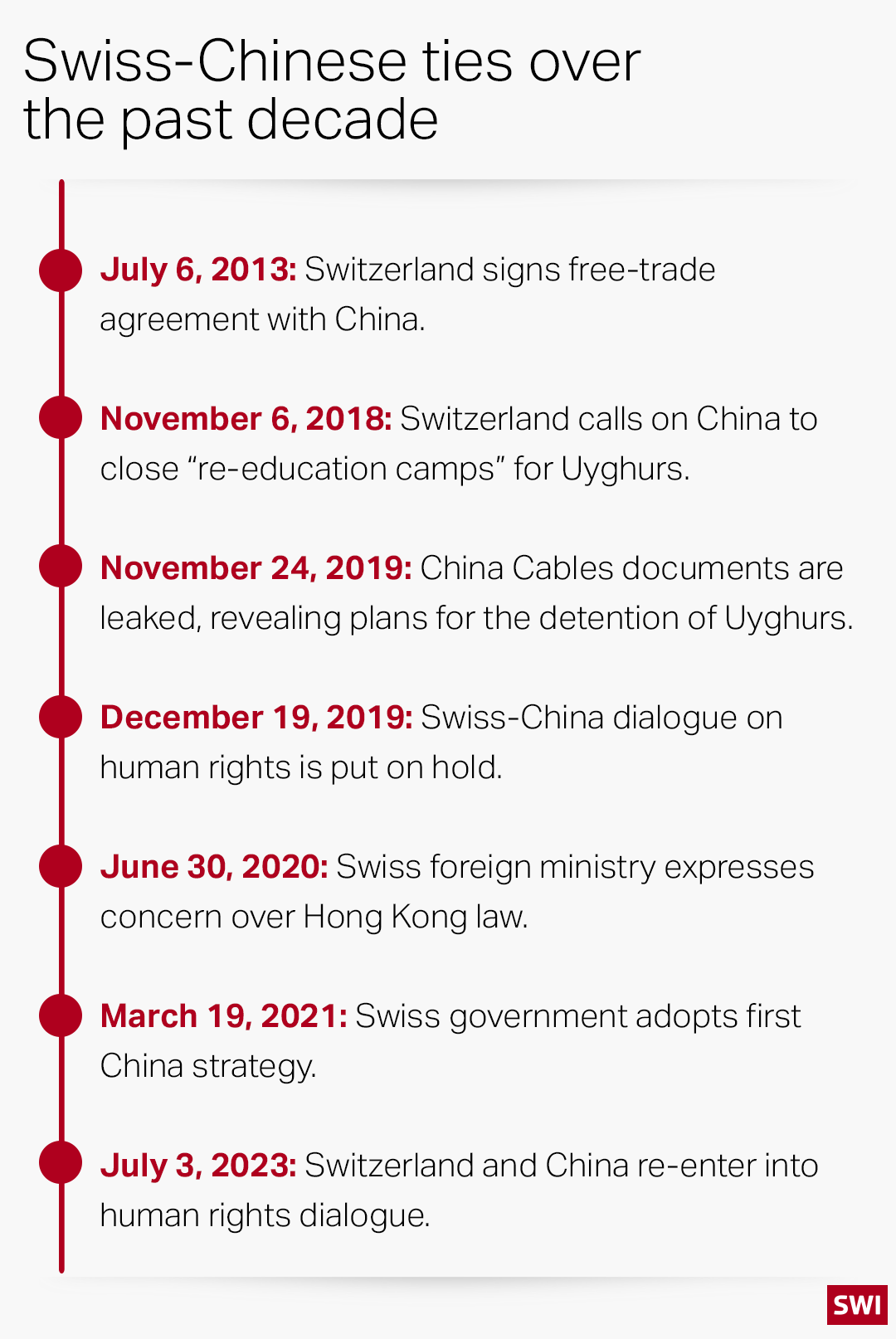
Does this decision mean that Switzerland is getting closer to China? Not necessarily. “Switzerland is trying to keep all options open, but the mere fact that we’re asking ourselves this question says a lot about our lack of clarity on how to weigh interest and values,” says Weber.
However, the Swiss government is now under great pressure. Next Tuesday, the United Nations (UN) General Assembly in New York will appoint 15 new members to the Geneva-based Human Rights Council, and China is pushing for a seat. Molina and Gerhard Pfister – from The Centre party – sent foreign minister Ignazio Cassis a letter asking him not to vote for China, as reported by the Swiss Tages-AnzeigerExternal link newspaper.

More
How China is rewriting human rights norms
What effects will this decision have internally and internationally?
According to a confidential discussion paper of the Swiss foreign ministry seen by the NZZ, one of the main advantages of adopting the sanctions would have been to strengthen Swiss credibility as a solid partner abroad. “So, I think that this will hurt Switzerland’s image as a reliable partner,” says Weber.
“I’m disturbed by the fact that Switzerland has a pragmatic approach when it comes to human rights and its foreign policy. Deciding on a case-to-case basis risks implying that pragmatic interests are above the constitutionally enshrined values of the country, and this is a damaging notion,” continues Weber.
+Read more: ‘There is some movement in the relationship between Switzerland and the EU’
The same discussion paper also underlined that the adoption of the sanctions would have sent a positive signal to the EU about the ongoing negotiation process. “So, the government is sending a negative signal, which will further attract criticism over Switzerland’s disposition to compromise when it comes to China. Switzerland is on the spot.”
However, a spokesperson for the EU commission told SWI swissinfo.ch that they are aware that “partners at times choose not to align with a specific decision. We do not expect this particular decision to have any specific impact on the EU-Swiss relationship.”
The sanctions that the EU imposed on China are referred to as thematic sanctions, which means that they are not imposed on the whole country, but they target individuals, companies or a specific issue. These sanctions include travel bans, asset freezes and target officials who have been accused of human rights violations against the Uyghurs.
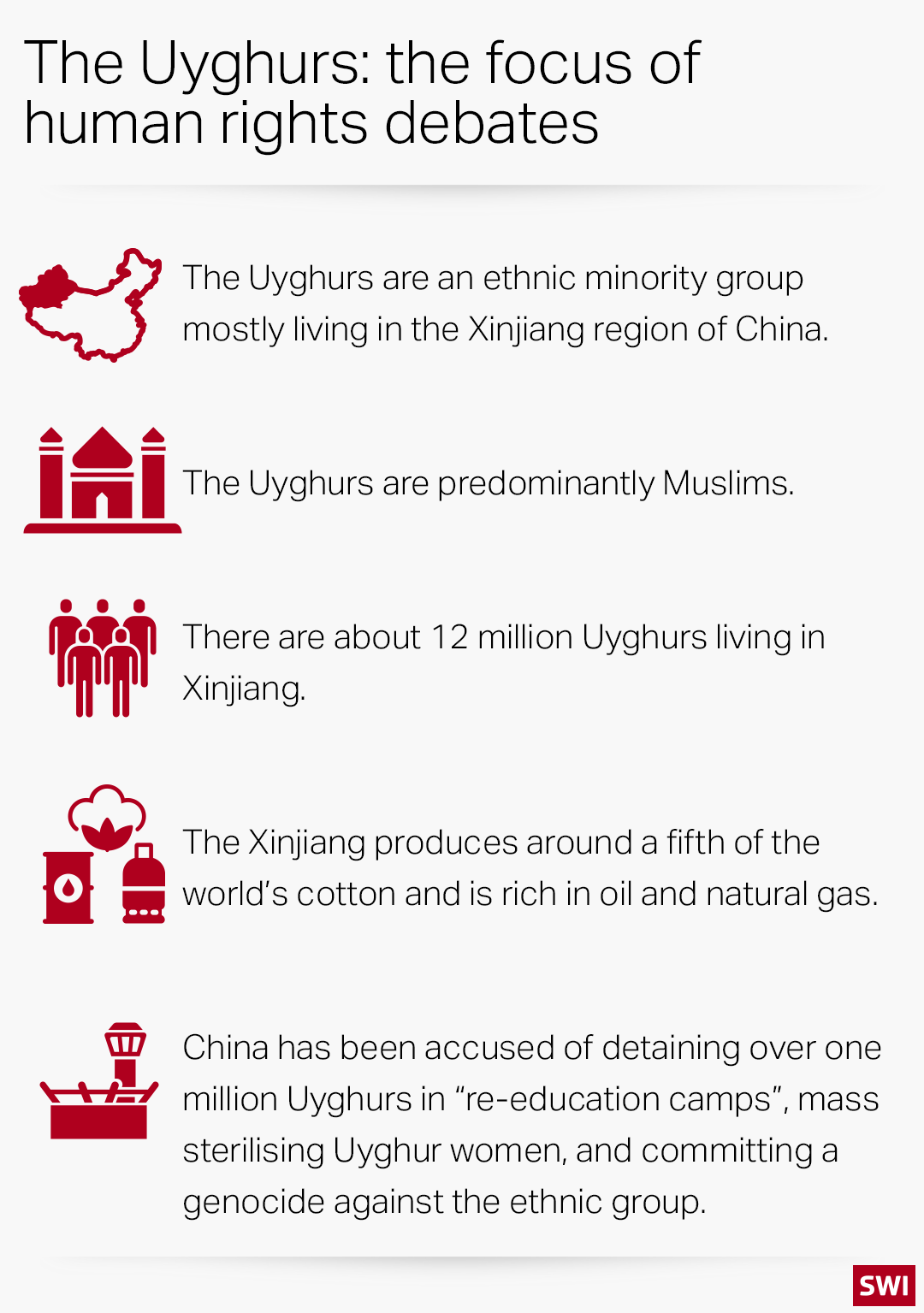
The Uyghurs are an ethnic minority, predominantly Muslim, who mostly live in the Xinjiang region of northwestern China. According to Chinese statistics, there are around 12 million Uyghurs living in the country, which corresponds to almost half the population in Xinjiang.
In 2018, the UN revealed that at least a million Uyghurs were detained in “counter-extremism centres” in Xinjiang. According to the report, a further two million have been detained in “re-education camps” since 2017.
The US described the detentions as a form of genocide. But China has rejected the allegations, saying the policies are necessary to “fight extremism”. Five years on from the UN report, the situation hasn’t much improved. Last September Uyghur scholar Rahile Dawut was sentenced to life in prisonExternal link in China in a secret trial on charges of endangering state security.

In compliance with the JTI standards
More: SWI swissinfo.ch certified by the Journalism Trust Initiative









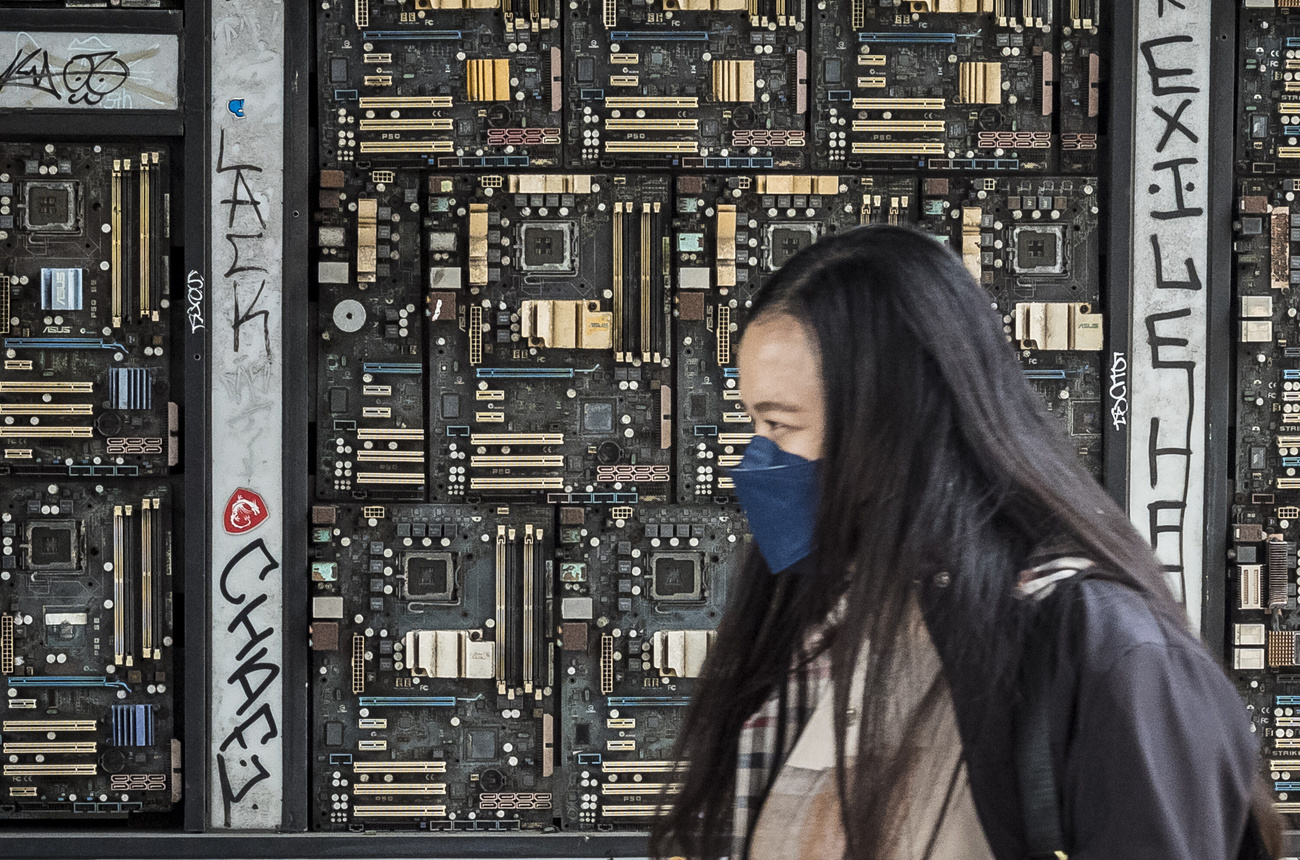

You can find an overview of ongoing debates with our journalists here . Please join us!
If you want to start a conversation about a topic raised in this article or want to report factual errors, email us at english@swissinfo.ch.